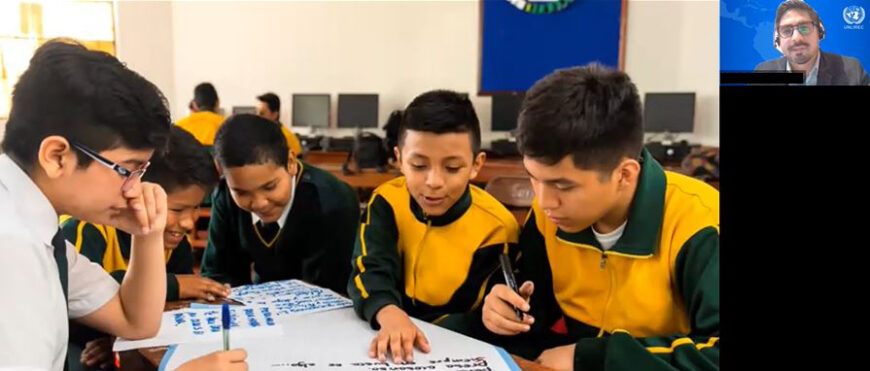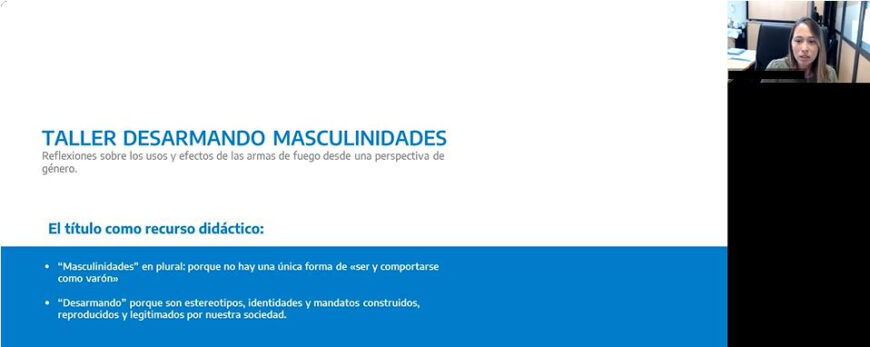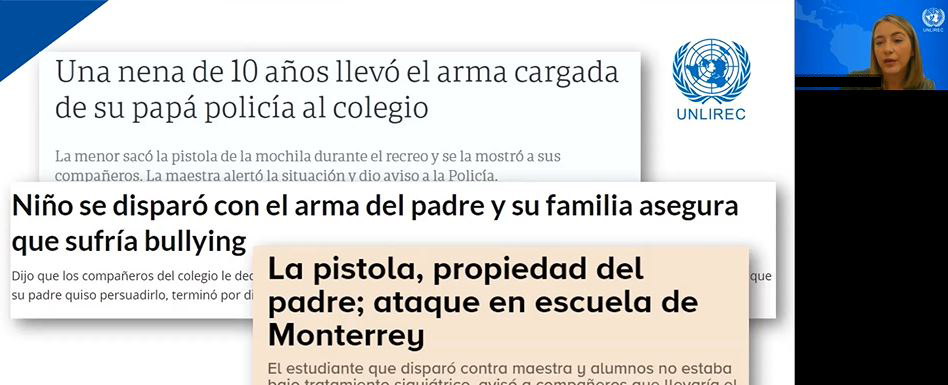On the 9 November, UNLIREC and the National Agency for Controlled Materials (ANMaC) of Argentina held a national dialogue on the prevention of firearms prevention in schools. The main objectives of this virtual event were to share the principal findings of the regional study conducted by UNLIREC on firearms in schools, as well as to promote the intersectorall dialogue regarding impacts, challenges and routes for action to prevent the presence and use of arms in schools.
As part of the agenda of this meeting, UNLIREC shared the main findings from the study Firearms in Schools in Latin America and the Caribbean: approaches, challenges and answers. In this vein, UNLIREC presented the regional overview of the main characteristics of this phenomenon in recent years in the countries of the region, as well as sharing a series of initiatives and measures that have been implemented in some countries in the region to address and prevent the presence and use of firearms in schools.

ANMaC held a presentation in which they highlighted the specific policies developed by the Agency in this area in recent years, highlighting the different actions that were implemented to raise awareness in educational communities about the risks and impacts of the proliferation and misuse of firearms. Of these activities, the workshops “Beliefs that kill” and “Disarming Masculinities” aimed at students from secondary schools from different provinces in Argentina were highlighted.

This national perspective was complemented by a presentation led by the Alfredo Marcenac Civil Association from the Argentinian Network for Disarmament, which highlighted some underlying cultural elements in societies that influence the phenomenon in question, such as the symbolic value assigned to weapons as mechanisms for conflict resolution. During this intervention the experience developed in the framework of the Educational Programme for Disarmament Awareness and Peacebuilding aimed at educational institutions at different levels in the Province of Buenos Aires was also shared.
This virtual meeting was possible thanks to the generous financial contribution from the Government of Switzerland.

